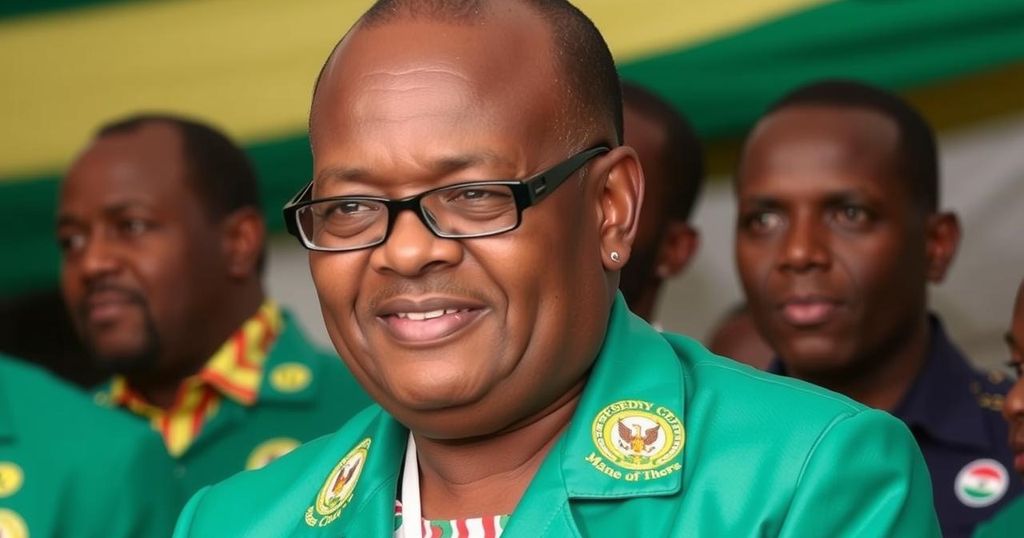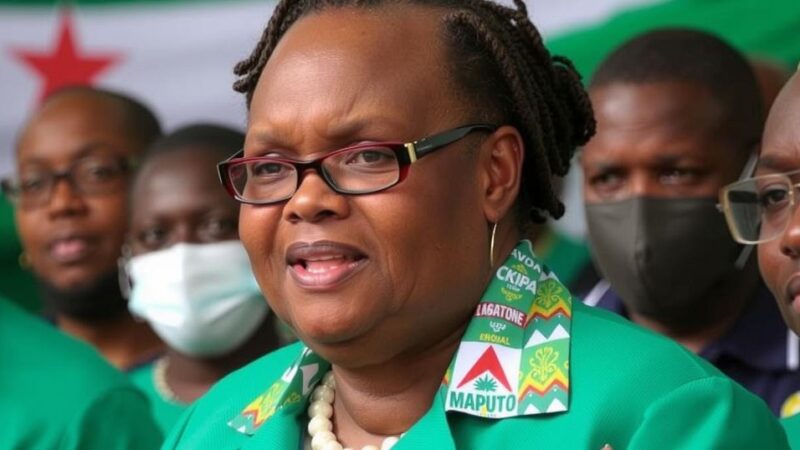Vice President Mahamudu Bawumia has conceded defeat in Ghana’s presidential election to former President John Mahama. The election, influenced by the nation’s economic struggles, signaled a call for change from the electorate as the NPP ended its two-term rule. Early results indicated Mahama’s decisive victory, sending reverberations through the political landscape of Ghana.
Vice President Mahamudu Bawumia of Ghana’s ruling New Patriotic Party (NPP) has conceded defeat in the recent presidential election, recognizing the electorate’s demand for change amidst widespread dissatisfaction with the nation’s economic crisis. The election concluded on Saturday, marking the end of the NPP’s two-term leadership under President Nana Akufo-Addo, during which Ghana faced severe inflation and a financial default, culminating in a $3 billion bailout from the International Monetary Fund.
In a press conference, Bawumia stated, “The people of Ghana have spoken, the people have voted for change at this time and we respect it with all humility.” He also acknowledged his rival, John Mahama of the National Democratic Congress (NDC), who previously served as president, and congratulated him on the victory. Following the announcement, jubilant supporters of the NDC celebrated outside their headquarters in Accra, eager for the transition of leadership. Mahama confirmed the reception of Bawumia’s call and celebrated his emphatic victory.
Bawumia’s concession signals a significant political shift, as the NDC, according to its own internal calculations, secured 56.3% of the popular vote compared to 41.3% for Bawumia. The ongoing economic difficulties greatly influenced voter sentiment, with many citizens dissatisfied with the NPP’s management of the economy. Although inflation rates had decreased from over 50% to approximately 23%, citizens remained concerned about the cost of living and economic stability, thereby facilitating Mahama’s political resurgence.
Ghana’s electoral history has been characterized by alternating rule between the NPP and the NDC since the reintroduction of multiparty democracy in 1992. With Bawumia aiming to break the cycle of party succession and secure a third term under the NPP’s banner, his inability to distance himself from the current administration’s economic troubles ultimately contributed to his electoral defeat. The official results from the election commission are expected by Tuesday, but early tallies indicate a clear shift in the political landscape of Ghana, highlighting the electorate’s desire for new leadership and direction.
The recent presidential election in Ghana marks a pivotal moment in the nation’s political history, as Vice President Mahamudu Bawumia has acknowledged his defeat against rival candidate John Mahama of the National Democratic Congress. This election has been heavily influenced by the current economic conditions in Ghana, which have included high inflation and significant debt, leading to a lack of confidence in the ruling party’s ability to manage the economy. This context underscores the electorate’s demand for a change in leadership, as demonstrated by the election results.
In summary, the recent presidential election in Ghana reflects the electorate’s desire for change following years of economic hardship. Vice President Bawumia’s concession of defeat to John Mahama marks a significant political transition, as the NDC prepares to assume leadership. The economic challenges faced by the NPP under President Akufo-Addo substantially impacted voter sentiment, signaling a potential shift in policy direction under Mahama’s anticipated presidency.
Original Source: www.voanews.com







